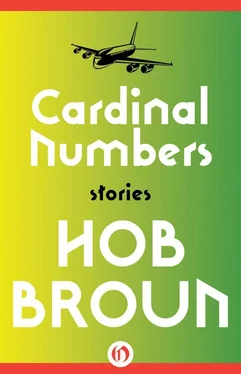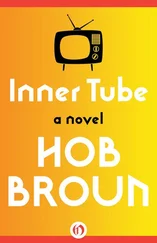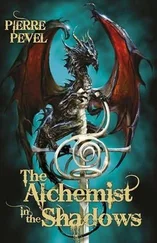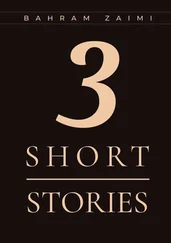Modulate.
Modulate. All right.
But I can’t stop wanting to know what I’m looking at.
CHE AND AN OLD friend, Alberto Granados, launched on a prolonged tour of Latin America by motorcycle and on foot at the end of 1951 … Chile via Patagonia … Peru … the Amazon … Colombia … Venezuela … Granados stayed in Venezuela and Guevara, travelling in a plane loaded with thoroughbred horses, spent a month in Miami.
RICHARD BOURNE
Political Leaders of Latin America
RUMBLING 12,000 FEET above the Caribbean: The cargo hold was frigid, and Che, wheezing, heated water for maté with an immersion coil.
“They don’t agree with you, the horses?” asked Placido, the groom.
“Asthma,” Che explained.
Supported by canvas belly slings, the nervous animals quivered in their stalls, breathing in short bursts. Placido soothed them, humming, rubbing, adjusting leg pads. Sucking the maté little by little, like his grandmother, Che thought of Racetrack and Soccer Field as two political parties: pomp and control versus tumult and passion.
In Leticia, where the borders of Brazil, Peru, and Colombia converge, Granados had been hired to coach a junior soccer team. Most of the players went barefoot, and their only ball leaked air. But they were tireless, ferocious tacklers, and ran all day with no more fuel than coffee and bread.
The plane shuddered in an air pocket, and Placido sprang up, throwing his arms around a colt’s neck. Che thought: He works for the horses, not for the boss.
IN Miami, at the airport luncheonette, Che had a doughnut and three glasses of water. Behind the counter, on a mat of paper grass, was a baby alligator, stuffed, with an orange in its jaws. He did not understand the money or the language. What kind of penance was this? New contexts for study, every form of contradiction. United Snakes, Granados called it. Really, the trip was already over. Proven: He could act on impulse like anyone else, Ernesto, the methodical future physician. Evident: He should have stayed in Caracas.
Che approached a man in an authoritative black visor cap to ask about hotels.
“Sure, you want a place talks your talk, serves your food. Come on, my cab’s right outside.”
In the wide car Che heard American radio for the first time, brass music, an overexcited voice. He thought of Evita when she was on the radio. “Brought to you by Jabon Radical.” Evita as Lucrezia Borgia. Evita as Joan of Arc … Evita dying now in Buenos Aires, but giving her alms to the end, to the unending line of supplicants, her descamisados, moving toward the marble hall on Avenida Real.
“Hey,” the cabbie said. “Are you in the cigar business?”
The Moncada desk clerk didn’t care to see his passport, just cash in advance. The room had a sink, but no toilet. The bedspread was edged with dangling pom-poms of chenille. From the window he could see the backs of several buildings, a Chinese cook smoking by the trash cans.
Later he sat on a green couch in the deserted lobby and read Marti. He could smell seepage, mildew, some disagreeable cologne. He leafed through tattered magazines and saw slogans like “Safety-Flow Ride” and “Self-Cleaning Magic.” Two prostitutes came in, noticed his rope sandals, and went right by. Che smoked his pipe and went to bed hungry.
CHE knew where he was in the morning: alone with not enough money. He had guava and cream cheese for breakfast. He brewed maté in his room and studied a map. The ocean was miles away.
A postcard (Everglades ’Gator Wrestling) to friends:
Dear Hawkeye & Tonio — Greetings from another onetime Spanish possession. But nobody worries about History here. Everything is paved. When the sun doesn’t shine, they give a refund. The local air seems to help my asthma. Back soon for exams? Maybe.
Love to all — Nesto
He went outside to look for stamps, walked quite a way not finding any. Nearly everyone he saw wore a hat. Their faces, even while smiling, were preoccupied, expectant. Heat came up as he went. There were scarred trees. Dogs ran loose and idlers smashed bottles. An aroma of scorched snack-bar onions passed on the air. Women in white shoes bargained with a man selling fish from the trunk of his car, boys jeered and shadow-boxed — everyone was black. A man in chauffeur’s whipcords stood by himself at the end of the street. He kept looking up, scanning, as though waiting for a bomber group to appear.
ONE morning the manager of the hotel brought coffee straight to his room.
“Black as the devil, hot as hell and sweet as love,” she said.
Celia carried her wealth on her body, like a gypsy. There were rings on every finger. Che was embarrassed. “Argentina, eh? You look like a gaucho.” “I’m from Buenos. My family is in the shipping business.” “You got the smarts, all right. I’m not so old so I don’t notice.”
It was hard to find Celia’s real age under so much rouge and rice powder. She’d come here just after the war, she said, from Havana, where she’d been a beautician and a santeria priestess.
“Here some busboy wants to turn his sweetheart. I sweep the place, I cut the chicken, pour the rum, but no loa comes. Ogun won’t talk. Shango won’t talk. Nothing. I find out you got to do for yourself here. Nobody else going to.”
Celia was sitting on the edge of the bed now. She squeezed his hand.
“But I like you. What I’m thinking, I could help you get a camera, make you a business. Like at the fronton, the dog track, and the zoo. Also parks and outside nightclubs. Turistas have to prove they been. They pay for you to take picture.”
“I don’t need work,” Che said, lighting his pipe. “Just coffee.”
YESTERDAY’s newspaper had announced a sixteenth straight day of sunshine, but today it stormed. Che ducked into an arcade. He saw his reflection in the window of a luggage shop, wide-eyed, unshaven, confused. He could not help looking over his shoulder. In Toffenetti’s — Haberdashery for Men, he browsed until ejected by clerks. He ate a small bag of peanuts. The clock over the newsreel-theater box office was encircled by a flickering blue neon tube. Che was tempted to think that measurement, the language of numbers, was another form of hearsay — he was an uncomfortable materialist. But he knew that six hydrogen atoms in a ring with six of chlorine made Gammexane. That intangibly slow summer between terms he had developed the insecticide in his father’s garage, tested it on river mosquitoes in Zárate. His father, tangibly, had offered the capital necessary for small-scale manufacture.
He took a seat in the back row of the theater. The travelogue was about Indonesia. It showed elephants at work in a teak forest. After that came an instructional film on home canning. Che studied the backs of heads, diagnosing impatience and inertia both. Phrenology in the dark, and onscreen the graduated dial of a pressure cooker.
“Here the string beans are processed in steam for at least twelve minutes to insure that any spores of Clostridium Botulinum are destroyed.”
Che went into the men’s. He washed, avoiding himself in the mirror, filled and tamped his pipe, saw the feet sticking out. They were battered and bruised, shoeless. He opened the stall door. A tramp lay curled among newspaper, his head alongside the base of the toilet, one eye crusted over.
“Are you ill, señor? Let me help.”
The tramp covered himself with papers. “Beat it. Piss off.”
Che watched an unruly black duck blab its way out of the roasting pan in a color cartoon. He thought of microbes swarming invisibly over the floor.
LOOKING for a post office so he could wire home for money, Che found a library instead. Granite gray, pillared, dense, it was dustily cool inside, while petunias planted round the flagpole wilted in the heat. The shelves were brown and thick with varnish. The ceiling fans were still. He pulled a book at random— A Bride in the Hand by Lila Claire (C) — and caught a falling ant that had been laying its eggs inside, or eating the glue.
Читать дальше












